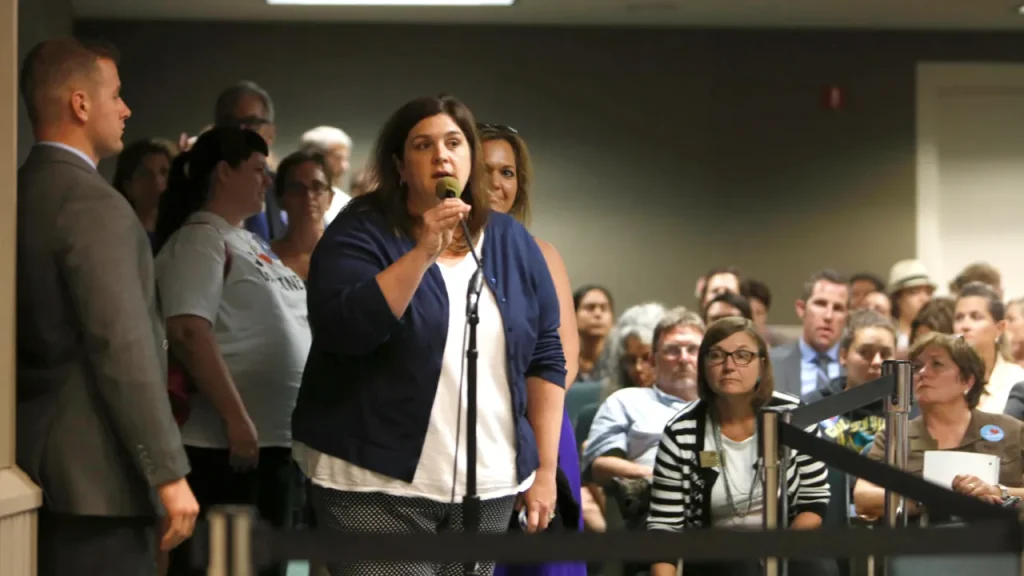Former California Governor’s Chief of Staff Charged in $225,000 Fraud Scheme
In a shocking turn of events that has sent ripples through California’s political landscape, Dana Williamson, the 53-year-old former chief of staff to Governor Gavin Newsom, was arrested Wednesday on serious fraud charges. Federal prosecutors have unveiled a 23-count indictment against Williamson, alleging she orchestrated an elaborate scheme to divert $225,000 from a dormant political campaign into the personal account of an associate. The charges include conspiracy to commit bank and wire fraud, defrauding the United States, obstruction of justice, filing false tax returns, and making false statements to authorities. This case represents a significant development in what U.S. Attorney Eric Grant described as “an ongoing political corruption investigation that began more than three years ago,” underscoring the Justice Department’s commitment to protecting California citizens from political misconduct.
The indictment identifies Sean McCluskie as Williamson’s alleged co-conspirator in the fraud scheme. McCluskie previously served as chief of staff to Xavier Becerra during his tenure as U.S. Health and Human Services Secretary in the Biden administration. According to court documents, beginning in April 2022, Williamson allegedly helped McCluskie by using her political consulting company to bill Becerra’s campaign for services that were never actually performed. The payments were reportedly directed to McCluskie’s wife for what prosecutors characterize as a “no-show job.” The arrangement allegedly continued until late 2022, when Williamson prepared to join Governor Newsom’s office. At that point, prosecutors claim she arranged for an unnamed former public official to take over her role in the ongoing scheme, effectively ensuring the fraudulent operation would continue despite her new governmental responsibilities.
The investigation into these activities began during the Biden administration, highlighting that the case transcends partisan politics and represents a serious effort to address alleged corruption regardless of political affiliation. A spokesperson for Governor Newsom confirmed that “Ms. Williamson no longer serves in this administration,” adding that while they are still learning the details of the allegations, “the governor expects all public servants to uphold the highest standards of integrity.” The spokesperson also emphasized the importance of presuming innocence until proven guilty, particularly noting the sensitive timing of the case “when the president is openly calling for his attorney general to investigate his political enemies.” It’s worth noting that Governor Newsom himself is not mentioned in the indictment, suggesting the alleged misconduct was limited to Williamson and her associates rather than involving the governor’s office more broadly.
Beyond the alleged campaign fund diversion, the indictment contains additional charges related to Paycheck Protection Program (PPP) loan fraud. Prosecutors claim Williamson conspired with a business associate to create false, backdated contracts after receiving a civil subpoena in January 2024 from the U.S. Attorney’s Office regarding PPP loans made to her business. This aspect of the case highlights the growing scrutiny of potential fraud in pandemic relief programs, which were designed to help struggling businesses but have become targets for alleged misappropriation. IRS Criminal Investigation Oakland Field Office Special Agent in Charge Linda Nguyen addressed this aspect of the case, stating that “disguising personal luxuries as business expenses — especially to claim improper tax deductions or to willfully file fraudulent tax returns — is a serious criminal offense with severe consequences.”
The case against Williamson represents a significant blow to the political establishment in California, where she had risen to one of the most powerful staff positions in state government. As Newsom’s chief of staff until late 2024, Williamson wielded considerable influence in shaping policy and directing administrative priorities for one of the nation’s largest state governments. Her fall from grace illustrates the precarious nature of political power and the personal consequences that can follow allegations of corruption. The investigation itself demonstrates the complex interplay between state politics and federal law enforcement, with U.S. Attorney Grant emphasizing their office “will continue to work tirelessly with our law enforcement partners to protect the people of California from political corruption.” The multi-agency approach to the investigation suggests authorities devoted substantial resources to uncovering the alleged scheme.
The broader implications of this case extend beyond the individuals charged, potentially affecting public trust in government institutions and raising questions about oversight mechanisms for political campaigns and their expenditures. The alleged fraud involving dormant campaign funds points to potential vulnerabilities in campaign finance regulations that may warrant closer scrutiny. Similarly, the PPP loan allegations highlight continuing concerns about the integrity of pandemic relief programs. As this case proceeds through the legal system, it will likely prompt discussions about ethics in public service and the accountability mechanisms necessary to ensure that those entrusted with governmental authority act in the public interest rather than for personal gain. For Williamson personally, the charges represent a dramatic reversal of fortune – from helping to run America’s most populous state to facing the prospect of a federal trial and potentially significant prison time if convicted of the serious charges outlined in the 23-count indictment.








